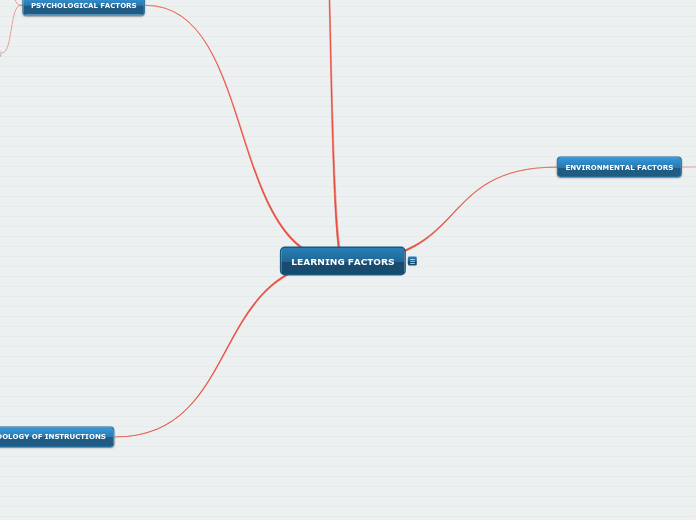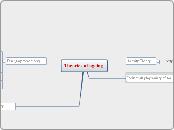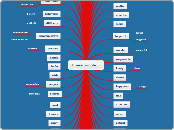LEARNING FACTORS
BY: ESTEFANIA AZUCENA QUINTANILLA MARTINEZ. SMLI586118
ANA AZUCENA FUENTES FUENTES.
SMLI078617
METHODOLOGY OF INSTRUCTIONS
Timely Testing
Through tests, the learner knows his exact achievement, and there is no scope for over-estimation or underestimation. Occasional and periodical testing motivates the pupil to be regular in his studies.
Learning by Doing
Practice makes a man perfect. Repetition and practice is important for learning. The pupils must be encouraged to learn through activity. Theoretical teaching should be replaced by practical application of knowledge, experimentation and personal application. Children learn better through personal experience. Verbalisation should be reduced to minimum.
PSYCHOLOGICAL FACTORS
Motivation and Interest
No learning take place unless it is motivated. Purposeless learning is no learning at all. Every child is impelled by some motive to learn new things. In the absence of motivation, can he does not feel interested in the act of learning. A child’s behaviour in learning is energised by motives, selected by motives and directed by motives.
self- esteem
Low self-esteem can negatively affect virtually every facet of your life, including your relationships, your job and your health. But you can boost your self-esteem by taking cues from types of mental health counseling.
Mental Health
Mental tension, complexes, conflicts, mental illnesses and mental diseases hamper learning. A maladjusted child finds it difficult to concentrate. Concentration needs mental poise and absence of mental conflict or complex. Some pupils find it difficult to prepare for the university examination, simply because of fear of the examination and anxiety neurosis. A calm, serene and balanced mind her the power to concentrate and learn better.
ENVIRONMENTAL FACTORS
Working conditions
Learning is hampered by bad working conditions such as distraction, noise, poor illumination, bad ventilation, overcrowding, bad seating arrangement, and uncomfortable stay both at home and school. The location of the school, the internal set-up, the accommodation, decoration and healthful and sanitary conditions are very important for efficient learning.
PHYSIOLOGICAL FACTORS
Physical Health
Ill health hampers learning. Sound mind is only in a sound body. Sound physical health gives vigour and vitality to pursue learning activities for a longer education. A diseased person is handicapped by the normal physical strength necessary for any mental activity.
Fatigue
Muscular or sensory fatigue causes mental boredom and indolence. A number of factors in the home and school environment may cause physical and mental fatigue, such as lack of accommodation, bad seating arrangement, unhealthy clothing, inadequate ventilation, poor light, noise over crowdingness, and pure nutrition. Longer homes of study also cause fatigue which affects the learning capacity.
Atmospheric conditions
High temperature and humidity lower the mental efficiency. Low ventilation, lack of proper illumination, noise and physical discomfort (as we find in factories and overcrowded schools) hamper the learning capacity. Distractions of all sorts affect power of concentration and consequently the efficiency of learning.
Age









